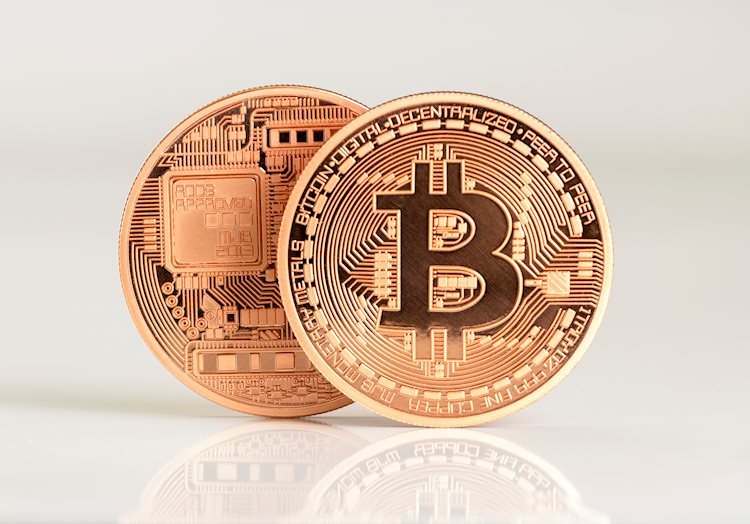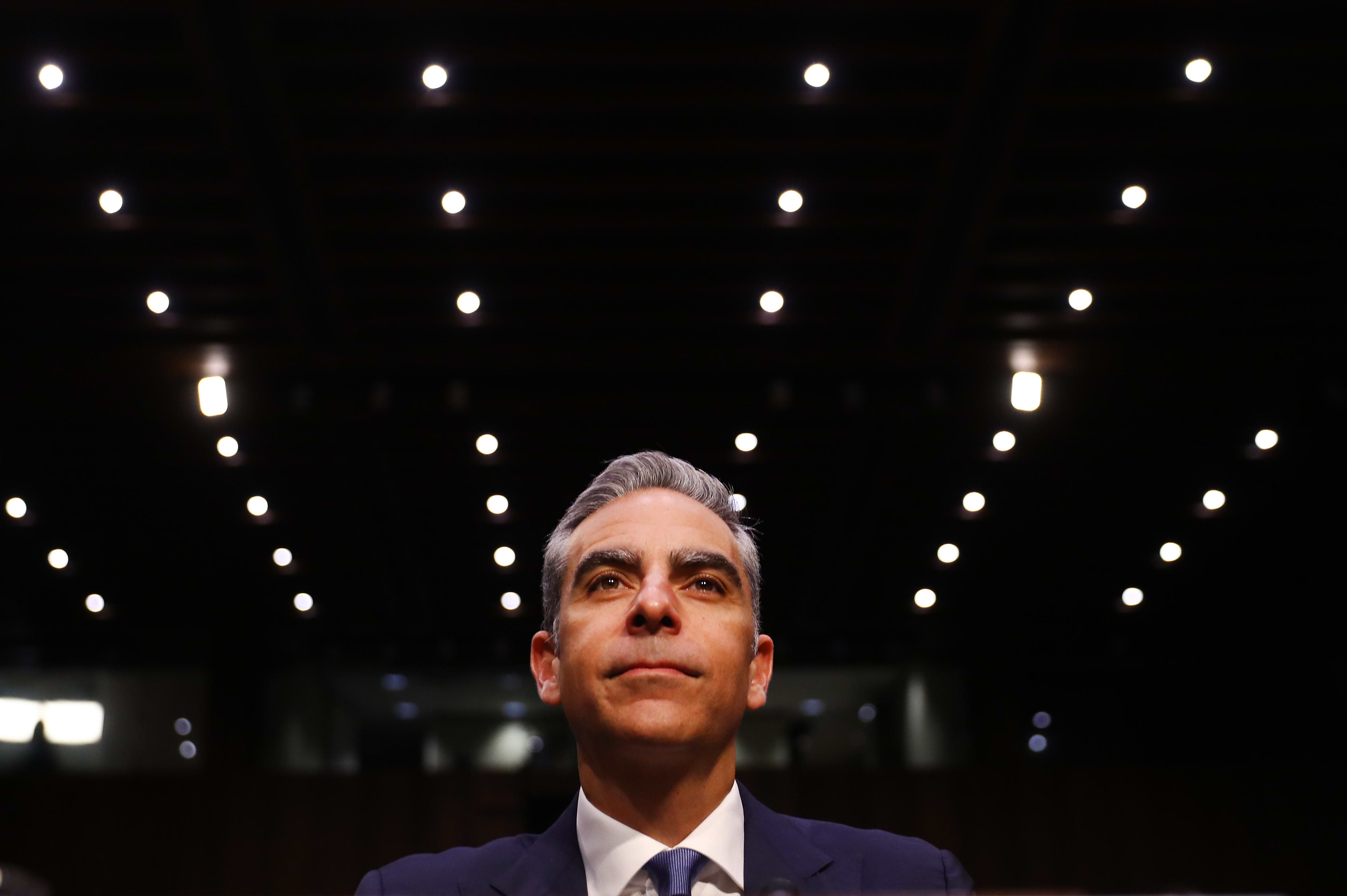This New Bitcoin And Cryptocurrency Exchange Can’t Be Hacked - Forbes
- Get link
- X
- Other Apps
This New Bitcoin And Cryptocurrency Exchange Can’t Be Hacked - Forbes |
- This New Bitcoin And Cryptocurrency Exchange Can’t Be Hacked - Forbes
- Death threats for cryptocurrency 'scam' whistleblower - BBC News
- The cryptocurrency market update: Bitcoin and major altcoins lack momentum - FXStreet
- Facebook-led Libra project announces its 21-member council after exodus of top payments companies - CNBC
- Europol: Bitcoin is the still the dark web’s favorite cryptocurrency - The Next Web
| This New Bitcoin And Cryptocurrency Exchange Can’t Be Hacked - Forbes Posted: 14 Oct 2019 07:10 PM PDT  Getty Bitcoin exchange hacks have plagued the cryptocurrency ecosystem since the first platforms for trading were launched in the early 2010s, and these events have caused major public relations issues for the entire crypto asset market. While exchange hacks don't have anything to do with potential technical problems related to the underlying Bitcoin network, it's never a good look when millions or even billions of dollars worth of Bitcoin is stolen from thousands of exchange customers in a matter of minutes. Although the Bitcoin exchange industry has improved its ability to deal with crypto asset security over the years, the threat of another large hack is always looming over the ecosystem. But that could soon change. One of the main features of Bitcoin is that it's programmable money, and developers have figured out new ways to build exchanges in ways that do not require users to turn over control of their funds until the exact moment they want to make a trade. One of the new exchanges that is taking advantage of this technology is Nash. How Does Nash Secure Customer Funds? In the past, exchange customers have always deposited their coins onto trading platforms with the exchange taking custody of the funds. That exchange platform then becomes a central point of focus for hackers because there's a big payday in it for them if they're able to get into the exchange's internal wallet. With platforms like Nash, users do not need to hand over custody of their crypto assets to a third party before they trade. Many Bitcoin enthusiasts are excited about the Lightning Network's potential to cut transaction costs, speed up transactions, and potentially improve user privacy. And this same sort of technology can be used to vastly improve the level of security offered by exchanges. Nash uses a system of state channel smart contracts to handle trades, and the system is currently live on the Ethereum and Neo blockchains. Notably, the Ethereum blockchain recently surpassed Bitcoin in a key measurement of overall adoption. However, Ethereum's ETH token is also down heavily against Bitcoin over the past couple of years. According to Nash co-founder and Lead Developer Fabio Canesin, Bitcoin support is expected to be added to their platform soon. "We initially demonstrated that our proposed architecture could deliver cross-chain markets that compete with the performance of centralized exchanges – an extremely important parameter for liquidity," said Canesin when reached for comment. "For this reason, we focused on the NEO-ETH market. Now that this is live and functioning well, we can move onto other networks. Bitcoin is the obvious next candidate owing to its importance in our industry." State channels effectively allow multiple parties to transact with each other in Bitcoin or other cryptocurrencies without having to touch the blockchain. This works via a technical trick that involves two parties placing funds into a 2-of-2 multisig address and then creating valid transactions from that multisig address to each of their personal addresses as a way to update how much of the funds in the multisig address belong to each party. None of these generated transactions are actually broadcast to the blockchain. The only transactions that hit the blockchain are the ones at the end when each party is ready to leave the payment channel with the appropriate amount of funds (if this was too confusing try reading this longer explanation of the Lightning Network). While decentralized exchanges have existed in the past, a key advantage of using state channels is they allow transfers to happen instantly, meaning users don't have to wait seconds or minutes for blockchain confirmations to execute their trades. It should also be noted that, while customer funds cannot be stolen by hacking an exchange's internal wallet, hackers could still cause plenty of damage if they were able to push out a malicious software update to Nash customers. That said, this is still a huge security gain. "Updates require a signed payload using offline keys," said Canesin when asked about this potential issue. "However, if a hacker did somehow manage to push a malicious update, users would also have to log in and sign a transaction before encountering an issue. The data in our software is not enough, since user-provided entropy is also required. We try to mitigate these risks by building several layers of protection." The high level of security offered by Nash also relies on the integrity of the smart contracts backing the exchange, and vulnerabilities in advanced smart contracts have continued to pop up in 2019. Other projects that are working on this type of non-custodial trading technology include SparkSwap, which is built on the Lightning Network, and Arwen, which has built its own plugin model for existing exchanges. In addition to their trading platform, Nash is also working on a mobile wallet, browser extension, and payment processing service for merchants that will all be integrated with each other. While even the developers behind Bitcoin admit the cryptocurrency is an experiment that could still fail, exchanges like Nash are another step in the right direction when it comes to improving both usability and security of this technology at the same time. This is also the sort of technology that makes it clear that it would be difficult for governments to implement a Bitcoin ban, as two members of the U.S. Congress recently admitted. Note: This article was updated to point out the potential issues associated with complex smart contracts that are used as the basis for Nash's exchange and other similar platforms, as pointed out by Kraken CEO Jesse Powell on Twitter. |
| Death threats for cryptocurrency 'scam' whistleblower - BBC News Posted: 14 Oct 2019 04:11 PM PDT  Image copyright Jen McAdam Image copyright Jen McAdamA woman has received death threats after speaking out about an international cryptocurrency "scam". Jen McAdam, from Glasgow, has been leading a band of investors who believe they have been duped by the OneCoin digital currency. OneCoin is said to have raised as much as £4bn around the world in investment. But US prosecutors argue that far from being the next Bitcoin, OneCoin is a pyramid scheme masquerading as a cryptocurrency. The scheme's founder Dr Ruja Ignatova has disappeared and is facing money laundering charges. Ms McAdam is one of an estimated 70,000 people in the UK who bought packages from OneCoin but have been unable to trade or fully cash in their stake. The Bulgaria-based firm is still trading and denies any suggestion OneCoin is a scam, claiming it fulfils all criteria of the definition of a cryptocurrency. 'Vile abuse'Ms McAdam is taking part in the 'Cryptoqueen' BBC Sounds podcast which is investigating the disappearance of Dr Ignatova and OneCoin, and said she has had a torrent of abuse since. The 49-year-old revealed she has received scores of messages, mainly through Facebook, threatening her with sexual violence and death in what she claims are co-ordinated attacks by OneCoin supporters, and has now reported the threats to Police Scotland. She said: "It is horrible, the abuse is vile and the threats feel very real to me, I'm always looking over my shoulder now. "It is taking its toll on my health but I will not give up until me and the thousands of other OneCoin victims like me see some form of justice." Ms McAdam invested about £8,000 of her own money in the scheme, and persuaded family and friends to put in about £220,000, before realising she was not going to get the money back. "I know through the different victims' groups around the world that it is people just like me who are affected," she said. "They invested their life savings, they remortgaged homes and they convinced their friends and family to get involved -and they feel as awful as I do about it all because we were all duped. "We think there's around 70,000 victims in the UK but it feels as if they are being left behind, nobody here seems interested in this." Ms McAdam has called on the UK policing and financial regulation authorities to take the issue more seriously. 'Pyramid scheme'The Cryptoqueen podcast estimates OneCoin has raised as much as £4bn from people in 175 countries, with up to £96m in the UK alone. The flamboyant leader of OneCoin, Dr Ignatova, disappeared in 2017 and in March this year US prosecutors charged the Oxford-educated businesswoman in absentia with money laundering, with the Department of Justice calling OneCoin an old-fashioned pyramid scheme. New York County District Attorney Cyrus Vance was reported as describing OneCoin as "an old-school pyramid scheme on a new-school platform". What is cryptocurrency?An alternative to centuries-old forms of currency such as notes and coins, a cryptocurrency is like a virtual token which can be bought and sold on the internet. The currency is not printed by governments or traditional banks but created through a complex process known as "mining". The process is monitored by a network of computers across the world which use cryptography for security. Cryptocurrencies can be used to buy goods and services, like traditional currencies, but are also used as investments where people take advantage of their volatile exchange rates. Bitcoin is probably the most famous cryptocurrency but there are now thousands of the standalone digital currencies, with Facebook looking to launch its own too. But as OneCoin has proved, crypto can be more controversy than currency. Research published on 7 October showed that UK regulator the Financial Conduct Authority was conducting 87 investigations into the sector as of September, up from 50 a year earlier. OneCoin has rejected allegations that it is a scam, and states that "OneCoin verifiably fulfils all criteria of the definition of a cryptocurrency". It says the BBC podcast series into its business does "not present any truthful information and cannot be considered objective, nor unbiased". The company also claims that the allegations made about it around the world are being challenged, stating: "Our partners, our customers and our lawyers are fighting successfully against this action around the globe and we are sure that the vision of a new system on the basis of a 'financial revolution' will be established". A Police Scotland spokeswoman confirmed they had visited Ms McAdam and offered her advice in the wake of the anonymous threats against her. You can listen to The Missing Cryptoqueen podcast series on BBC Sounds. |
| The cryptocurrency market update: Bitcoin and major altcoins lack momentum - FXStreet Posted: 14 Oct 2019 10:49 PM PDT 
Low trading activity on the cryptocurrency market has been keeping Bitcoin and all major altcoins in tight rangers since the beginning of the week. The total market capitalization of digital assets in circulation has barely changed in recent 24 hours. At the time of writing it is registered at $226 billion according to CoinMarketCap data. An average daily trading volume edged to $52. Bitcoin's market decreased to 66.3%, which is the lowest level since the beginning of August. Top-3 coins price overviewBTC/USD is trading marginally above to $8,300 handle unchanged both on a day-on-day basis and since the beginning of the day. The initial resistance is created by $8,500, though we will need to see a sustainable move above $8,700 for the recovery to gain traction with the next focus on $9,000. |
| Posted: 14 Oct 2019 03:00 PM PDT  David Marcus, head of blockchain with Facebook Inc., waits for the start of a Senate Banking Committee hearing in Washington, D.C., U.S., on Tuesday, July 16, 2019. Andrew Harrer | Bloomberg | Getty Images Facebook's embattled cryptocurrency project has just announced its 21 founding members, a group that lacks many of the high-profile companies that originally voiced support for the effort. The members, including Uber, Lyft and Spotify, met in Geneva, Switzerland, on Monday to sign onto the Libra Association charter, which will govern the libra cryptocurrency. The board of directors will consist of five people, including David Marcus, Facebook's leader for the project, and representatives from Andreessen Horowitz, PayU, Kiva Microfunds and Xapo Holdings. The project hit a major snag on Friday, when Visa, Mastercard, Stripe, eBay and Mercado Pago all said they will no longer be part of the Libra project, following PayPal's decision to pull out earlier last week, and leaving PayU as the only remaining payments company on the council. Support dwindled further on Monday, with the departure of internet company Booking, which operates sites including Booking.com, OpenTable and Kayak. Facebook announced plans in June to create a new digital currency called libra that would be run by a nonprofit association supported by a range of companies and organizations. The company said at the time that each member of the association will manage one of the "nodes," or locations where transactions involving Libra are validated. Since then, Facebook has faced an onslaught of criticism from regulators and lawmakers who are skeptical of the company's ability to manage the risks and rigors of financial services given its many snafus in the handling of personal data. Facebook CEO Mark Zuckerberg will face lawmakers next week to defend the project at a hearing in front of the House Financial Services Committee. Several members of the committee have asked Facebook to postpone its plans until the proper regulatory mechanisms are in place. That was the backdrop for Monday's meetings. Several of the founding members reaffirmed their commitment while acknowledging that it has a long way to go. "Though it is still in the early stages, we look forward to exploring the opportunity offered by the Libra Association to empower billions of people globally, especially in financially underserved markets," Spotify said in a statement. According to the council's interim articles, each member has one vote and is expected to recuse itself if there's a conflict of interest. A two-thirds vote of the council is required to admit or oust a member of the council or board, adopt a new amendment of the articles or a key libra policy or dissolve the association. In a tweet after Monday's announcement, Marcus said "it was energizing to see reps from many different industries, and interests come together with one mission at heart." The remaining members of the Libra Council still have an out should they determine the regulatory hurdles are too steep. Members may leave for any reason, according to the "interim articles of association." They may transfer their membership "under limited circumstances." Each member is expected to invest $10 million to fund the association and launch an incentive program for libra. Women's World Banking, a group focused on helping to develop financial solutions in emerging markets, said in a statement that it "deems this as an important business initiative, if done right, to provide greater opportunity for low-income women to receive greater access to formal financial services." Here's the full list of members: Anchorage Andreessen Horowitz Bison Trails Breakthrough Initiatives Calibra Coinbase Creative Destruction Lab Farfetch Iliad Kiva Microfunds Lyft Mercy Corps PayU Ribbit Capital Spotify Thrive Capital Uber Union Square Ventures Vodafone Women's World Banking Xapo WATCH: FB's Marcus: There will be no special privilege for Facebook with Libra |
| Europol: Bitcoin is the still the dark web’s favorite cryptocurrency - The Next Web Posted: 14 Oct 2019 05:45 AM PDT  Bitcoin BTC is still very much the dark web's favorite cryptocurrency, but those looking to cover their tracks are slowly learning to use privacy-focused alternatives. "While we have previously reported a small shift towards more privacy-focused cryptocurrencies such as Monero, Bitcoin still remains the currency of choice for both legitimate and criminal use," reports Europol with its latest assessment of internet-based organised crime. Europol notes that Bitcoin's prevalence in the underground economy is a consequence of its familiarity within the customer base, particularly in dark web markets. In particular, ransomware campaigns have continued to feature Bitcoin almost exclusively. Europol highlighted these attacks as the most prominent cybercrime it tackles. Hard Fork has previously reported on numerous ransomware attacks that've demanded Bitcoin to restore encrypted files. Still, authorities say there has been a more "pronounced shift" towards more privacy-orientated cryptocurrencies, and expects this trend to continue as criminals become more security aware. "The main developments regarding this trend are on the Darknet [sic] markets, several of which also accept Monero, or in some cases exclusively trade in it," Europol added. Join us in Amsterdam on October 15-17 to discuss blockchain and cryptocurrency with leading experts. Published October 14, 2019 — 12:45 UTC |
| You are subscribed to email updates from "cryptocurrency news" - Google News. To stop receiving these emails, you may unsubscribe now. | Email delivery powered by Google |
| Google, 1600 Amphitheatre Parkway, Mountain View, CA 94043, United States | |
- Get link
- X
- Other Apps
Comments
Post a Comment